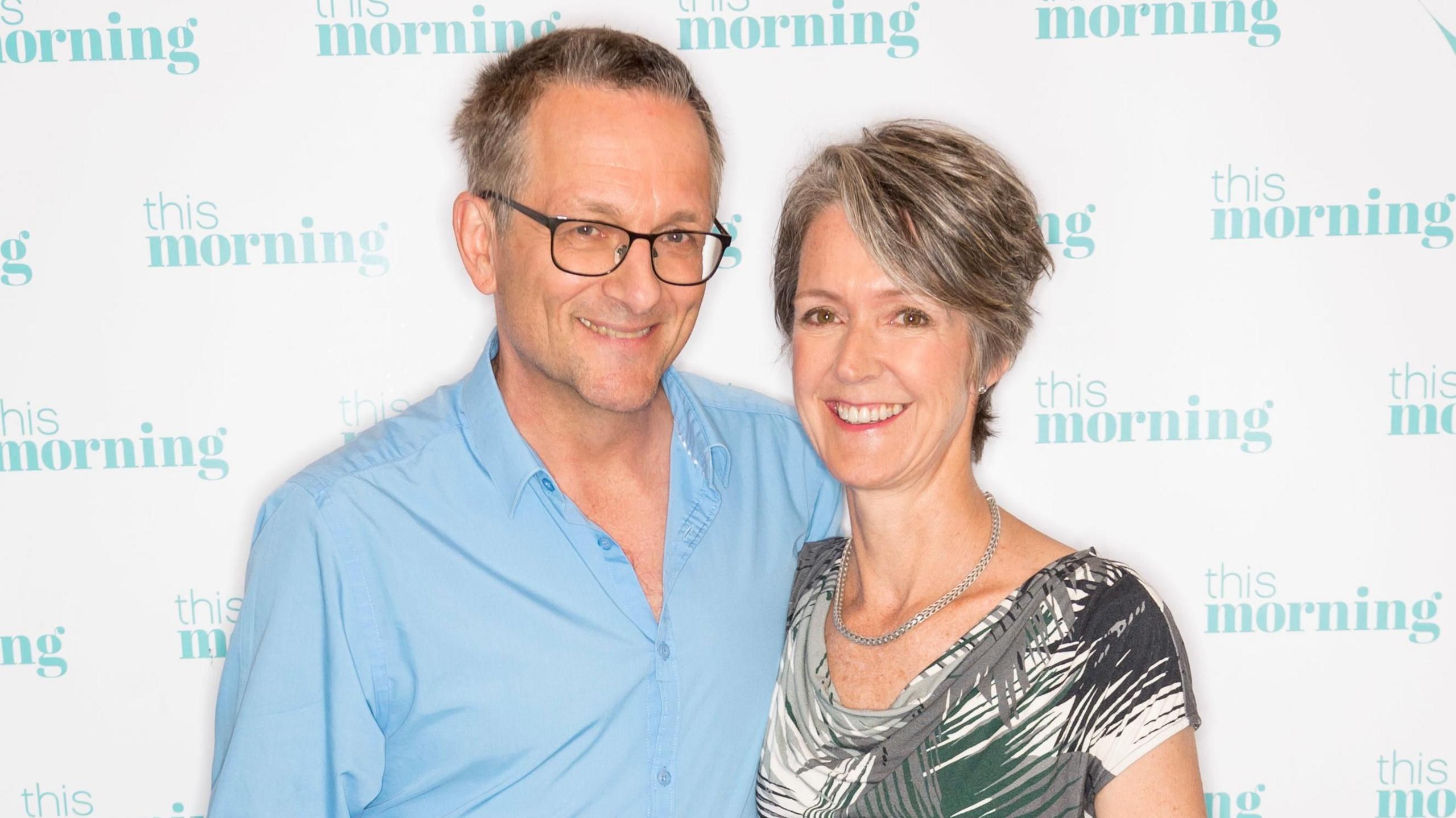Michael Mosley: TV host's life on the front line of science
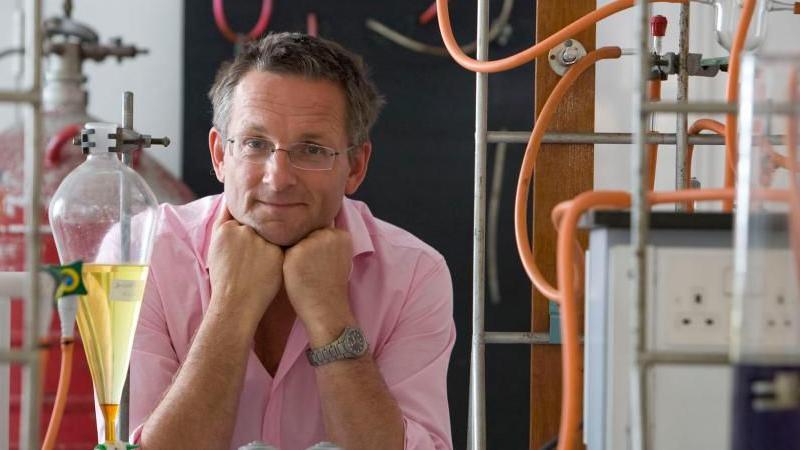
Dr Michael Mosley was a gifted communicator of complex scientific ideas
- Published
Dr Michael Mosley, who has died after going missing while on holiday on the Greek island of Symi, was one of the best-known presenters on British TV and radio.
Mosley was a fixture on the airwaves for almost two decades, known for his engaging and likeable style in shows that delved into diet, exercise and medicine.
In 2019, the Telegraph described him as “arguably the closest thing Britain has to a national treasure in the field of medical science”.
His series included Trust Me I’m a Doctor, The Truth about Exercise and Lose a Stone in 21 Days, and he became famous for testing out regimes and theories on himself – from injecting snake venom into his own blood to eating tapeworms to see what impact they had on the body.
Millions more knew him for giving advice on BBC One's The One Show and ITV's This Morning.
He was also famous for popularising the 5:2 and the Fast 800 diets, which advocate for intermittent fasting and low-carbohydrate meals.
Meanwhile, the simple, accessible health tips in his BBC Radio 4 series Just One Thing attracted 25 million listeners around the world, with a TV version announced earlier this year.
Mosley launched Just One Thing in 2021, with each episode focusing on a single idea for listeners to improve their health and lifestyle.
He presented more than 100 episodes, exploring easy life hacks ranging from taking an early-morning walk and meditating to skipping and eating chocolate.
He recorded an edition of the show at last week's Hay Festival, and the most recent episode - about the benefits of eating slowly - was aired on Radio 4 on Thursday morning.
Behind the scenes
Mosley was born in India in 1957, before moving to the Philippines and then being sent to England at the age of seven to attend boarding school.
School “wasn't a fantastic period of my life”, he told Radio 4 in 2015.
“I actually became happiest, I think, when I went to university. So there was quite a long and relatively unhappy period in which I spent too much time in England at boarding school and far too little time with my family.”
He studied PPE (philosophy, politics and economics) at Oxford University before getting a job as an investment banker, but became bored with finance after two years in the job.
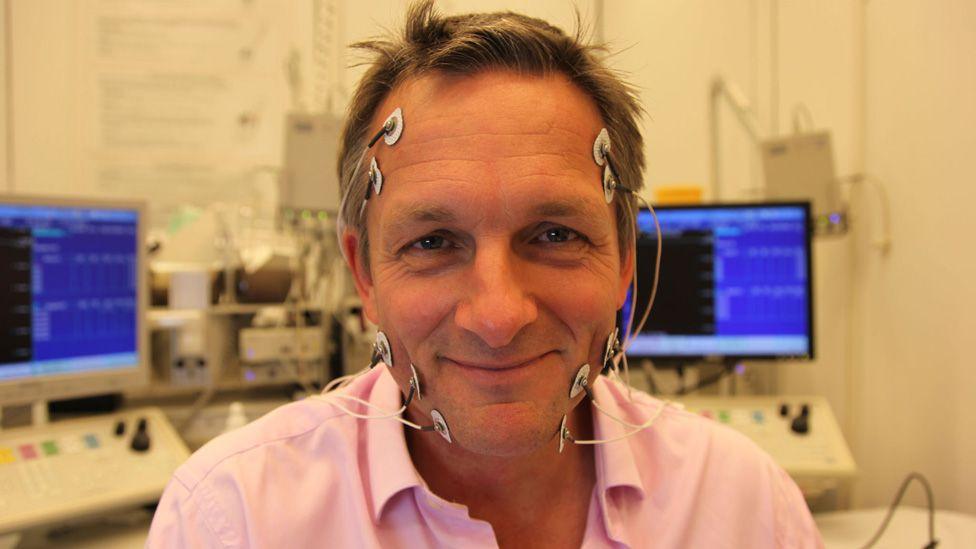
He often makes himself the guinea pig, such as in The Story of Science in 2010
He retrained as a doctor at the Royal Free Hospital in London, aiming to become a psychiatrist. But rather than using his skills in a medical capacity, he joined the BBC as an assistant producer in 1985.
He worked his way through the ranks, becoming producer of science shows like Tomorrow's World, QED and Horizon.
Other behind-the-scenes credits include The Human Face, which was presented by John Cleese and featured Elizabeth Hurley, Pierce Brosnan and Sir David Attenborough, and was recognised with an Emmy nomination in 2002.
Mosley received Bafta nominations for his work as executive producer on Leonardo, which starred Sir Mark Rylance as the painter, and Pompeii - The Last Day, both in 2003.
TV and radio career
He then moved in front of the camera, after a TV commissioner asked who would present a documentary he had pitched.
“I said, ‘I have no idea’, and they said, ‘Why don't you?’ And that's how I came to be on television.”
He soon became a household name thanks to programmes like BBC One's Make Me... in 2009, in which he experimented on himself to find out if he could make himself smarter, stay awake and delay ageing.
In the name of both science and entertaining TV, other things he put himself through included being exposed to CS gas, entering a contest for eating the world’s hottest chillis, and being filmed having a colon examination.
“You do wonder if he’s really a closet masochist getting his kicks courtesy of the licence fee,” the Times newspaper’s TV critic jokingly wrote in 2020.
The Telegraph described him as “part-boffin, part-human guinea pig, volunteering to try radical ideas in the name of improving public understanding around the body and mind”.
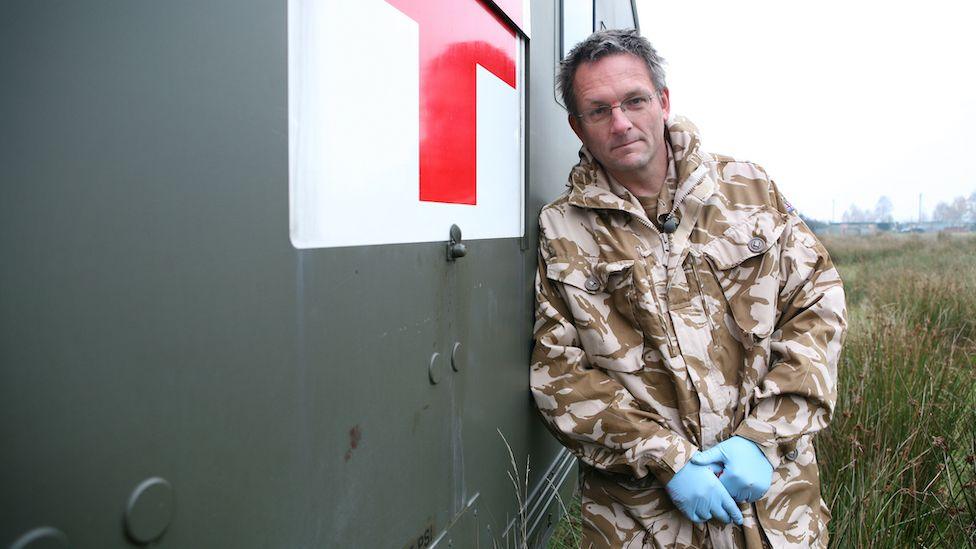
Michael Mosley pictured filming documentary Blood and Guts for the BBC in 2008
Mosley said he got the idea for self-experimentation after making a programme about a scientist who struggled to prove the effectiveness of a treatment for stomach ulcers – and eventually deliberately gave himself one.
“I discovered that almost all the great medical discoveries were made by self-experimenters, whether it was vaccines, anaesthetics or whatever,” he told Radio 4 in 2015. “And so I thought, this is a terrific idea.”
His 2012 BBC documentary The Truth About Exercise explored who benefitted the most from different types of aerobic training, while 2013's The Truth About Personality followed a similar format but focused on different outlooks on life and how to change them.
The same year, he helped bring back Trust Me I'm a Doctor, a programme he had originally produced in the late 1990s.
This time he was leading the line-up of presenters who examined a variety of health claims, attracting more than three million viewers.
Some of his work has been seen as controversial, including his 2021 series Lose a Stone in 21 Days for Channel 4.
He said in the three-part series that it was possible to lose a stone in three weeks by extreme calorie restriction.
This received backlash on social media, with eating disorder charity Beat stating they extended the hours of their helpline to support anyone affected by the show.
The broadcaster responded that Channel 4 had spoken to Beat “long before the programme went out”.
Mosley's diets advocated for a similar approach, with his Fast 800 Diet recommending those wishing to lose weight undertake an 800 calorie-a-day meal plan that is low in carbohydrates and includes Mediterranean foods.
His diets attracted a lot of attention, both for their methods and scientific accuracy.
But they were popular, and he published numerous books about Fast 800, as well as titles like Fast Exercise, 4 Weeks to Better Sleep, and a companion book to Just One Thing.
While qualified as a doctor, Mosley did not remain registered as a medical doctor.
He is survived by Clare Bailey, also a doctor and author, and has four children.
Related topics
- Published9 June 2024
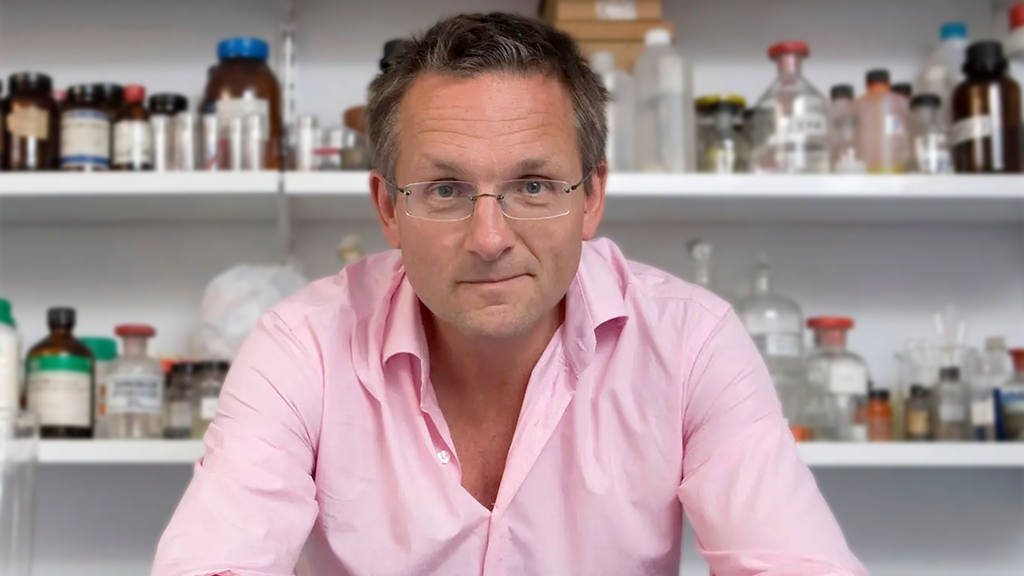
- Published10 June 2024
